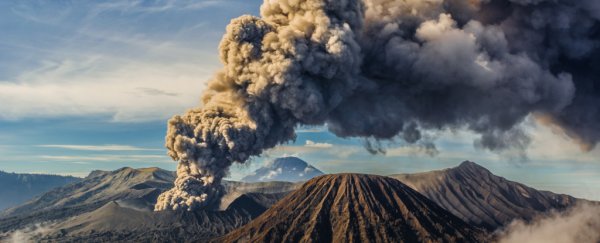According to a decade-long study by an international team of researchers, human CO2 emissions total 100 times more than the planet-warming effects of all volcanoes combined.
The total amount emitted by volcanoes is only about 0.3 gigatons a year - a tiny fraction of the 37 gigatons humankind produced in 2018 alone.
That means they're not nearly as big of a contributor to global emissions as some prevailing theories hold.
"Climate skeptics really jump on volcanoes as a possible contender for top CO2 emissions but it's simply not the case," Marie Edmonds, Professor of Volcanology and Petrology at Queens' College, Cambridge, told told Agence France-Presse.
In the distant past, there have been freak incidents on a similar scale to today's human CO2 output - and they were catastrophic. One such carbon event was the Chicxulub asteroid impact, 66 million years ago, which the scientists estimate to have released anywhere between 425 and 1,400 gigatons of CO2.
But the impact of industrial civilization is now taking a comparable toll.
"The amount of CO2 pumped into the atmosphere by [manmade] activity in the last 10-12 years [is equivalent] to the catastrophic change during these events we've seen in Earth's past," Edmonds told AFP.
"We are on the same level of carbon catastrophe which is a bit sobering," Celina Suarez, Associate Professor of Geology at the University of Arkansas, added.
The team of scientists released a series of papers as part of the so-called Deep Carbon Observatory, a global research program founded in 2009.
Unfortunately, for the Earth to level out carbon dioxide in its atmosphere, it'll be a very long while.
"It will rebalance itself, but not on a timescale that is of significance to humans," Suarez said.
This article was originally published by Futurism. Read the original article.
